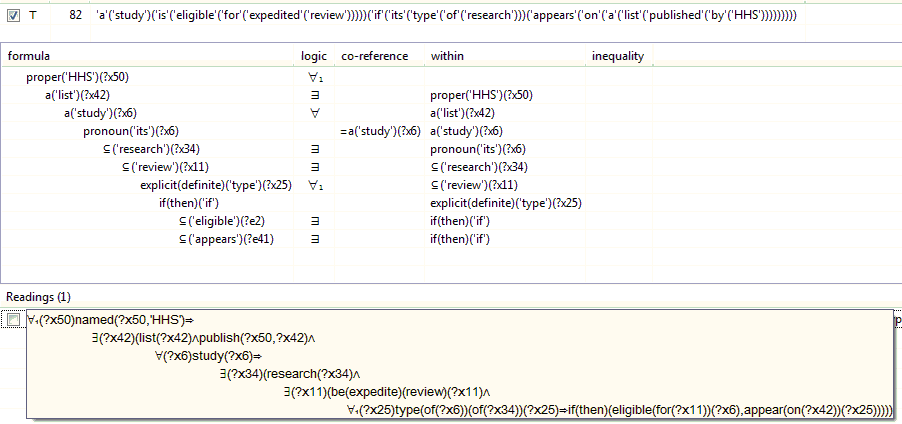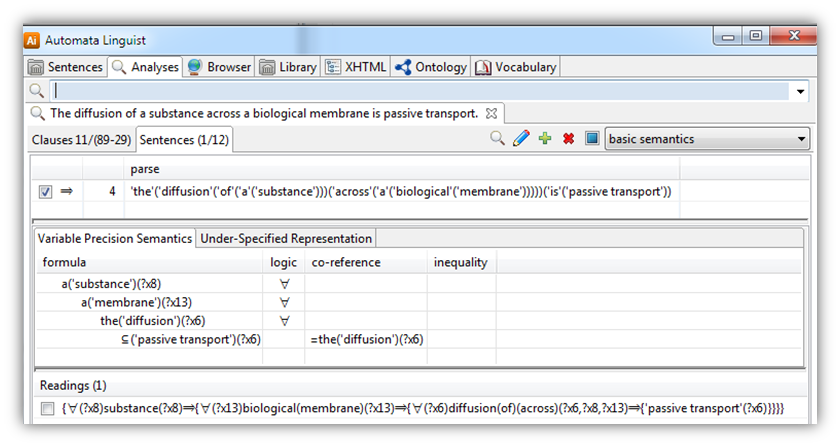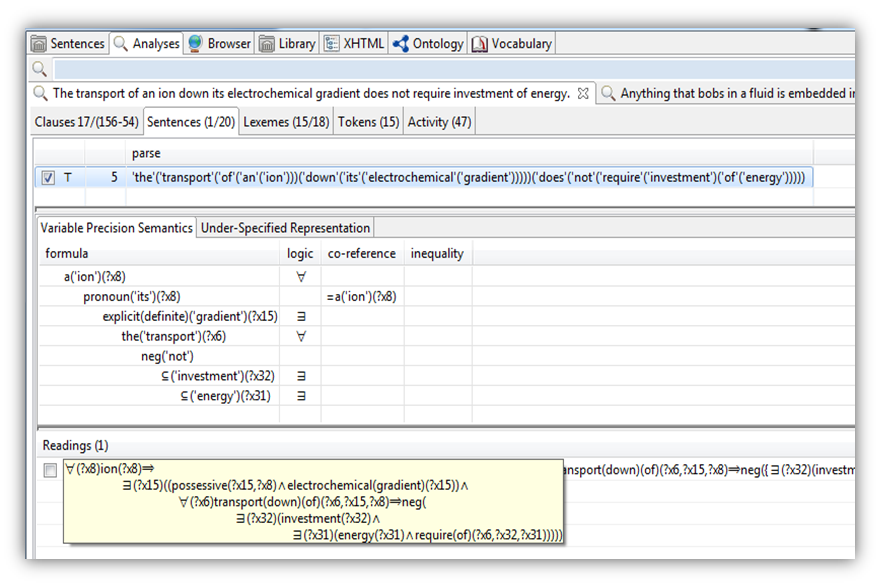Logic from the English of Science, Government, and Business
Our software is translating even long and complicated sentences from regulations to textbooks into formal logic (i.e,, not necessarily first-order logic, but more general predicate calculus). As you can see below, we can translate this understanding into various logical formalisms including defeasible first-order logic, which we are applying in Vulcan’s Project Halo. This includes classical first-order logic and related standards such as RIF or SBVR, as well as building or extending an ontology or description logic (e.g., OWL-DL).
We’re excited about these capabilities in various applications, such as in advancing science and education at Vulcan and formally understanding, analyzing and automating policy and regulations in enterprises.




